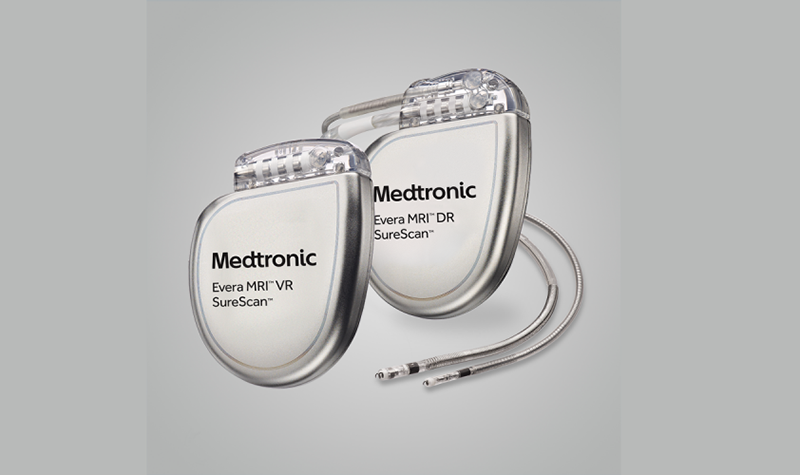Medtronic announced it has received CE Mark for its Cobalt™ and Crome™ portfolio of implantable cardioverter-defibrillators (ICD) and cardiac resynchronization therapy-defibrillators (CRT-D).
Read more Medtronic Buys Diabetes Management Startup Klue to Strengthen Personalized Closed Loop System
ICDs monitor heart rhythms and deliver therapy to correct heart rates that are too fast and can lead to sudden cardiac arrest. A treatment option for some people with heart failure, CRT-Ds send small electrical impulses to the lower chambers of the heart to help them beat in more synchronized patterns and reduce patient symptoms, reports Medtronic.
“Cobalt and Crome heart devices deliver the opportunity of a personalized approach to defibrillator therapy, demonstrating how far we have come in this field,” said Klaus Witte, M.D., of the School of Medicine, University of Leeds, United Kingdom. “Moreover, these devices offer seamless patient care through their ability to transmit device and patient data via smartphone or tablet.”
Here are some of the additional features within the new Cobalt and Crome implants, according to Medtronic:
- Intrinsic ATP™ (iATP), available on Cobalt XT ICDs and CRT-Ds, is the only automated algorithm that adapts to a patient’s irregular heart rhythms and attempts to reset them with painless pacing therapy, possibly avoiding the need for shocks. This ventricular anti-tachycardia pacing (ATP) provides individualized therapy in real-time and is paired with Medtronic-exclusive SmartShock™ 2.0 shock-reduction technology. The devices also feature improved longevity and energy output.
- This is the first Medtronic ICD and CRT-D portfolio to offer connected health with BlueSync™ Technology, which enables the implanted devices to communicate with the tablet-based CareLink SmartSync™ Device Manager for physicians, and the MyCareLink Heart™ mobile app for patients.
- The new CRT-Ds also include the EffectivCRT™ algorithm and the AdaptivCRT™ algorithm, which adjusts therapy according to minute-by-minute evaluations of each patient’s heart rhythm. AdaptivCRT has been shown to increase patients’ response to CRT; reduce unnecessary right ventricular pacing; reduce the likelihood of 30-day heart failure hospital readmissions; and reduce the risk of atrial fibrillation. In addition, AdaptivCRT is associated with improved patient survival.

Read more Medtronic’s Flex Embolization Device Receives FDA Approval for Brain Aneurysms
“The Cobalt and Crome devices demonstrate our commitment to enhancing device connectivity and personalized patient care,” said Rob Kowal, M.D., Ph.D., chief medical officer of the Cardiac Rhythm and Heart Failure division, which is part of the Cardiac and Vascular Group at Medtronic. “These advancements will help physicians respond to patients’ individual needs through informed clinical decision making, potentially improving the outcomes of patients around the world.”












